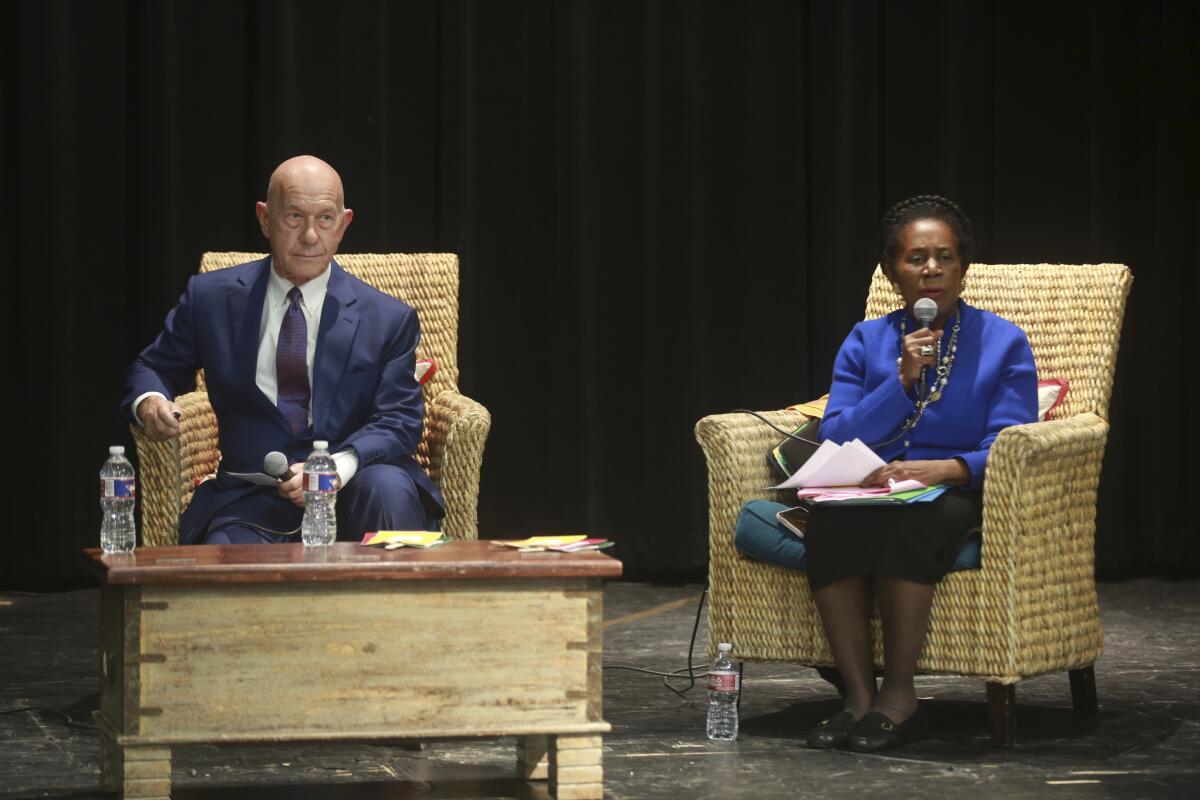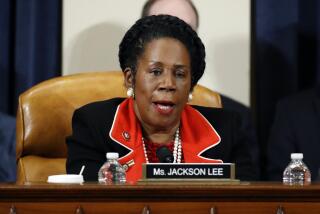Democrat John Whitmire elected Houston mayor, defeating congresswoman Sheila Jackson Lee

HOUSTON — Houston has elected Democratic state Sen. John Whitmire as its next mayor, elevating a Texas lawmaker who has represented the city for 50 years over U.S. Rep. Sheila Jackson Lee in a runoff.
Whitmire, 74, one of Texas’ most powerful Democratic legislators, will now be at the helm of America’s fourth-largest city. His campaign focused on reducing crime, improving streets and bringing people together. He heavily outspent Jackson Lee, who was running to become Houston’s first Black female mayor.
The congresswoman’s campaign also had to deal with fallout from the release in October of an unverified audio recording that purported to capture her profanely berating staff.
Whitmire built an insurmountable lead among early voters, winning among those voters by 30 percentage points.
Argentina’s President-elect Javier Milei has shown public interest in Judaism, incorporating shofars at campaign rallies and visiting a rabbi’s tomb.
Standing before a ballroom full of cheering supporters in the city’s convention center Saturday night, Whitmire said he was prepared to begin work.
“I don’t mind telling folks what a great city we have. But we’ve got great challenges. If we will come together and realize it won’t be easy. In fact, we will face challenges. But I see that as an opportunity. And I need you to join hands with me. We’ll meet our challenges. It’ll be an opportunity to show the nation what the city of Houston can do,” Whitmire said.
At her election night party, Jackson Lee thanked her supporters, congratulated Whitmire and said she was committed to working with him. Jackson Lee said she planned to announce in the near future a decision on whether she would run for reelection next year for her congressional seat.
“It’s sweeter to be saying what a sweet victory it is. It’s equally as sweet to acknowledge we put up a good fight,” Jackson Lee said.
Whitmire and Jackson Lee, two of Houston’s biggest political fixtures, had made it to Saturday’s runoff after emerging from a crowded field of nearly 20 candidates in the Nov. 7 general election.
Both candidates touted their decades-long political experience as strong qualifications to lead a growing city facing challenges that include crime, crumbling infrastructure and potential budget shortfalls.
Whitmire started in the Texas Legislature in 1973, first as a state representative and the majority of his time as a state senator. Jackson Lee has represented Houston in Congress since 1995 and before that had served on Houston’s City Council.
Booming growth over the last decade has caused municipal headaches but has also turned the Houston area into an expanding stronghold for Texas Democrats. Although the mayoral race is nonpartisan, Whitmire and Jackson Lee are both Democrats.
Whitmire will be the oldest big-city mayor in the U.S. He is set to lead a city which is becoming younger, with a median age of around 35 and with 25% of its population below 18, according to census figures.
The choice between Whitmire and Jackson Lee, who is 73, frustrated some Democratic voters, particularly younger ones, at a time when the party is searching for new political stars in Texas who might end 30 years of GOP dominance statewide.
The new mayor will have to deal with new laws from the GOP-led state government over control of local elections and the ability to impose local regulations.
Whitmire will replace Mayor Sylvester Turner, who has served eight years and can’t run again because of term limits.
Whitmire will also lead what is considered one of the country’s most diverse cities. Of the city’s 2.3 million residents, 45% are Latino, with 23% Black and 24% white. One in every four Houston residents was born outside the U.S.
Known as the energy capital of the world, Houston has long had an economy tied mainly to the oil industry. But the city is working to become a leader in the transition to cleaner energy. Like other large U.S. cities, Houston is also dealing with a lack of affordable housing and concerns among residents over growing gaps between the rich and poor.
More to Read
Sign up for Essential California
The most important California stories and recommendations in your inbox every morning.
You may occasionally receive promotional content from the Los Angeles Times.











